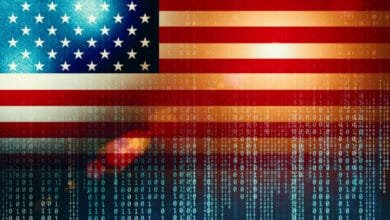Anthropic Proposes Changes to US AI Chip Export Rules

▼ Summary
– Anthropic supports the U.S. government’s AI chip export controls but suggests modifications to improve enforcement and international cooperation.
– The Commerce Department’s “Framework for Artificial Intelligence Diffusion” aims to regulate semiconductor exports to enhance U.S. competitiveness, categorizing countries into three tiers with China and Russia facing the strictest limitations.
– Anthropic proposes refinements for Tier 2 countries, advocating for government agreements to prevent black-market diversions instead of blanket purchase limits.
– CEO Dario Amodei has previously advocated for stronger semiconductor regulations, emphasizing balanced restrictions to protect U.S. technological leadership.
– The effectiveness of these export controls, set to be implemented on May 15, could significantly impact international tech competition as AI development accelerates globally.
The U.S. government’s proposed AI chip export controls have sparked debate among tech leaders, with Anthropic voicing cautious support while suggesting key modifications to the policy. The artificial intelligence company agrees with the broader national security goals but believes adjustments could improve enforcement and international cooperation.
Anthropic recently expressed strong backing for the Commerce Department’s “Framework for Artificial Intelligence Diffusion,” set to take effect May 15. The framework, introduced earlier this year, aims to strengthen America’s competitive edge in AI by regulating semiconductor exports. Countries are categorized into three tiers, with China and Russia facing the strictest limitations under Tier 3. Meanwhile, Tier 2 nations like Mexico and Portugal would encounter new purchasing caps, while close allies such as Japan and South Korea remain unrestricted in Tier 1.
While semiconductor firms like Nvidia have criticized the rules as overly restrictive, Anthropic stands firmly behind the policy’s intent. However, the AI lab proposed refinements—particularly for Tier 2 countries. Instead of blanket purchase limits, Anthropic recommends tighter oversight through government agreements to prevent black-market diversions while maintaining U.S. influence. The company also urged increased funding to ensure proper enforcement of export controls.
This stance aligns with Anthropic CEO Dario Amodei’s previous advocacy for stronger semiconductor regulations. Earlier this year, Amodei argued in the Wall Street Journal that unchecked exports could undermine U.S. technological leadership. The latest recommendations reinforce Anthropic’s position that balanced restrictions, rather than outright bans, best serve both security and innovation.
As the May 15 implementation date approaches, industry observers await further details on how the Commerce Department will refine its approach. With AI development accelerating globally, the effectiveness of these export controls could shape the future of international tech competition.
(Source: TechCrunch)

